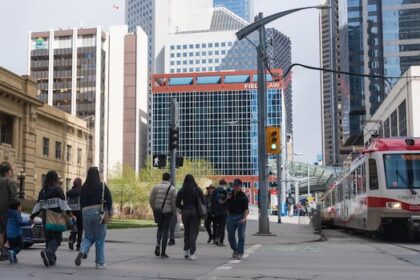OttawaShane Pinto scored his second goal of the night late in the third period to lift the Ottawa Senators to a 5-4 win over the Tampa Bay Lightning on Thursday. Shane Pinto scores tiebreaking goal late in 3rdErik Erlendsson · The Associated Press · Posted: Oct 10, 2025 8:36 AM EDT | Last Updated: 3 hours agoOttawa Senators defenseman Artem Zub celebrates with the bench after his goal against the Tampa Bay Lightning Thursday in Tampa. (Chris O’Meara/The Associated Press)Shane Pinto scored his second goal of the night late in the third period to lift the Ottawa Senators to a 5-4 win over the Tampa Bay Lightning on Thursday in the season opener for both clubs.Dylan Cozens and Artem Zub also scored for the Senators and Claude Giroux added an empty-netter. Brady Tkachuk had three assists and Linus Ullmark stopped 21 shots. Brayden Point had a goal and two assists for Tampa Bay, which fell to 21-10-2 in season openers. Nikita Kucherov scored twice and Oliver Bjorkstrand had a power-play goal.Andrei Vasilevskiy, who played only two periods in the preseason, finished with 29 saves.Jake Sanderson intercepted a pass at centre ice and transitioned up ice quickly to take the puck to the net, where Pinto punched in a loose puck with 1:47 left to put the Senators ahead for good at 4-3.Ottawa Senators defenseman Jake Sanderson blocks a shot by Tampa Bay Lightning right wing Nikita Kucherov. (Chris O’Meara/The Associated Press)The Lightning jumped on top early as Bjorkstrand, acquired from Seattle at the trade deadline last season, slid into the slot to receive a pass from Jake Guentzel and snap a shot past Ullmark with 14:25 left in the first period. Point made it 2-0 less than 90 seconds later, and Cozens answered with a power-play goal for Ottawa midway through the period.Kucherov regained the two-goal advantage for Tampa Bay with 5:14 left in the first on the Lightning’s second power-play goal of the period.Zub threw a puck toward net on the opening shift of the second that bounced off the post, then off Vasilevskiy 42 seconds into the period. Pinto converted a breakaway that tied the game with 4:51 left in the second.Ottawa takes on the defending Stanley Cup champion Florida Panthers Saturday night before their home opener on Monday afternoon.
Thursday, 5 Mar 2026
Canada – The Illusion
Search
Have an existing account?
Sign In
© 2022 Foxiz News Network. Ruby Design Company. All Rights Reserved.
You May also Like
- More News:
- history
- Standing Bear Network
- John Gonzalez
- ᐊᔭᐦᑊ ayahp — It happened
- Creation
- Beneath the Water
- Olympic gold medal
- Jim Thorpe
- type O blood
- the bringer of life
- Raven
- Wás’agi
- NoiseCat
- 'Sugarcane'
- The rivers still sing
- ᑲᓂᐸᐏᐟ ᒪᐢᑿ
- ᐅᑳᐤ okâw — We remember
- ᐊᓂᓈᐯᐃᐧᐣ aninâpêwin — Truth
- This is what it means to be human.
- Nokoma











